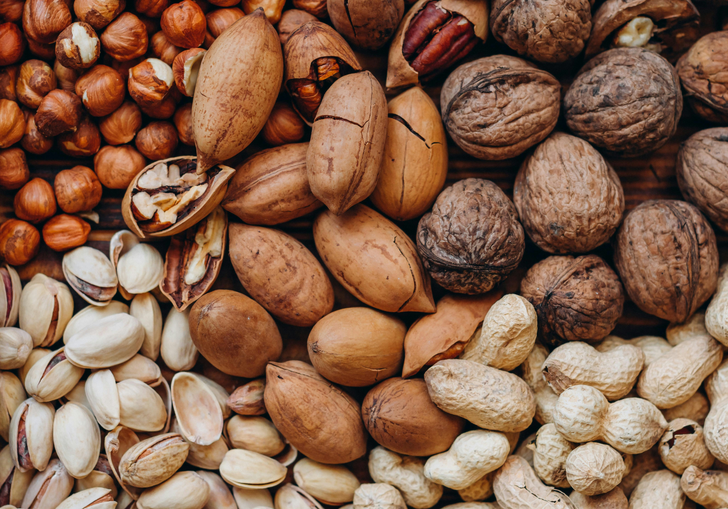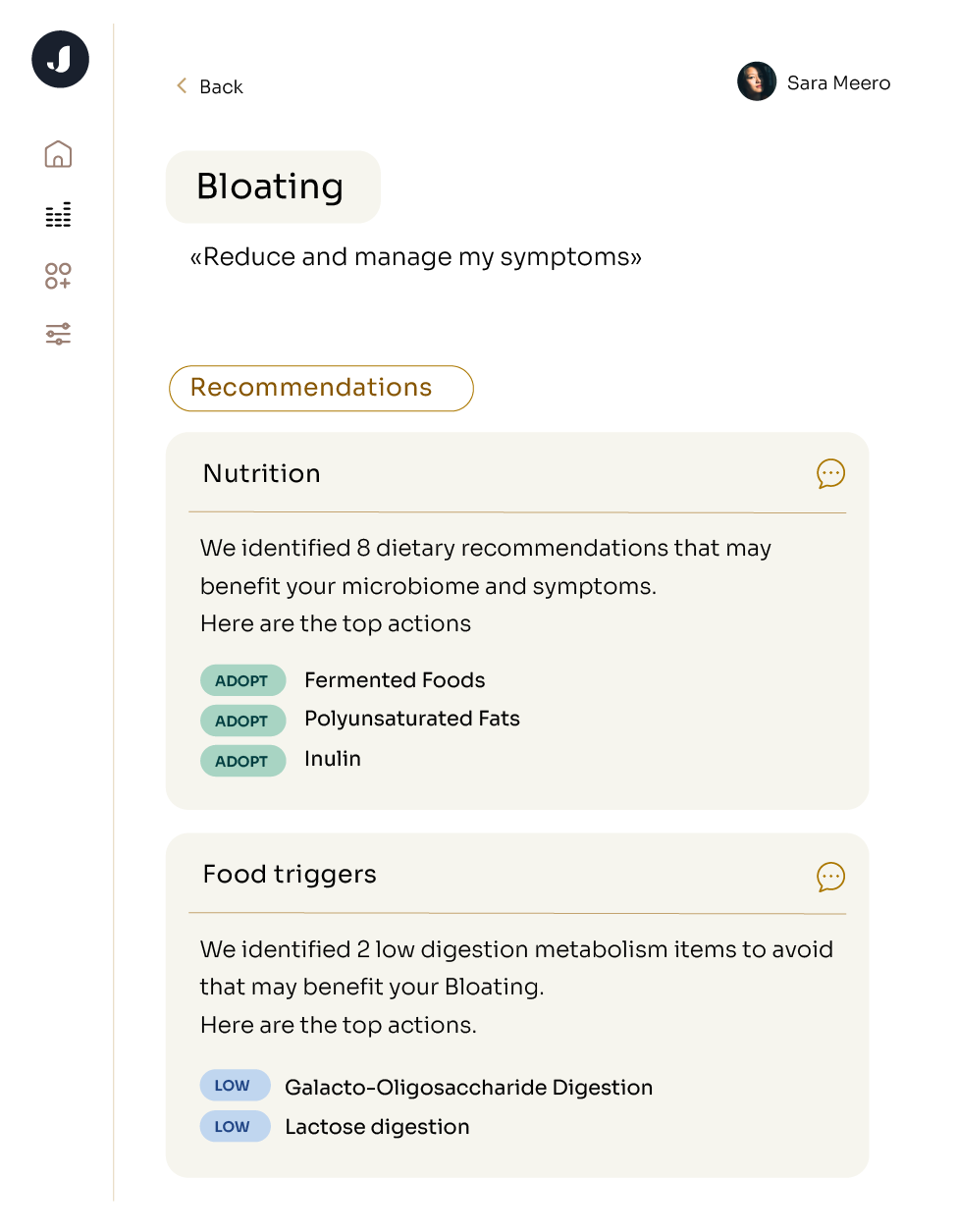Jona: Hi Dr K, we’re excited to get to know you and your practice. Can you give us a little background about yourself?
Dr K: I'm Dr. Larry Kosinski. I am a gastroenterologist by training. I practiced for 35 years in the northwest suburbs of Chicago, and helped build the largest GI group in Illinois, the Illinois Gastroenterology Group. I also sit on the AGA [American Gastroenterological Association] governing board, and have started a couple of companies. My experience with the microbiome predominantly over the years has revolved around treatment of C. diff. But, we know today from a lot of research, that the microbiome is involved with much, much more than just C. diff infections.
Jona: Why is the gut microbiome important to overall health?
Dr K: The gut microbiome is intimately involved in our health. The 38 trillion microorganisms that live inside of us are not just living there for no reason at all. They have a symbiotic relationship with us: we provide them a place to live, and we feed them with what we eat that we don't absorb in our diet. In return, they provide health-related compounds for us, they strengthen our intestinal border, they modulate our immune system, they can help us avoid certain cancers, and they can affect how our nervous system functions. They can make us live longer. They can even help us maintain our weight. So, they are intimately involved in our health.
Jona: In your many years of practice, what are the ways you've seen patients impacted by their gut microbiome?
Dr K: As I said previously, the microbiome is involved with your immunity, your absorption, a lot of the metabolic functions that are occurring in your body, your nervous function, and potential cancers. So Americans tend to eat a diet that doesn't necessarily produce the healthiest microbiome. And as a result, we see diseases, we see a lot of obesity, we see diabetes, we see cancers, and the microbiome can be utilized as an aid to help us avoid those conditions. It just is going to require that we eat differently.
Jona: As a GI doctor, what are the top things you would never do to your patients’ gut microbiome?
Dr K: Well, the first thing I would never do is go through a cleansing. I have probably done 25,000 colonoscopies in the course of my career, and every single one of those people had a cleansing in order for me to be able to see their colon. But within three weeks, their microbiome had reestablished itself. You don't accomplish anything through a cleansing, and, in fact, you can actually disturb the balance in there.
Secondly, the shotgun approach to the use of antibiotics needs to be avoided. Every time we place a patient on a broad-spectrum antibiotic, we are risking disruption of their microbiome. That's something that hopefully is being done less and less today. But those two issues - cleansings and the overuse of antibiotics - should be avoided.
Jona: How do you think providers and practitioners can incorporate the Jona microbiome test with their patients?
Dr K I think we're at an age today where the microbiome assessments, like what your team at Jona has been working on, can provide a lot more information than we ever were able to find out before. Shotgun genomics, like Jona uses, is now able to identify the entire microbiome, the genetics of that microbiome. We can get down not just to the species level, but actually down to the strain level.
Really it all depends on what the focus of a physician is at the time the test is ordered. For a gastroenterologist, we see a lot of patients who have colon polyps or are trying to avoid colon cancers. It’s great to advise the patient to adhere to a diet that will produce a microbiome that would be less likely to go on to form polyps and cancers.
If you're an endocrinologist, or an obesity physician, you would want to have your patient adhere to a diet that would promote better weight control. If you're dealing with inflammatory diseases, whether it be inflammatory bowel disease, rheumatoid arthritis, psoriasis, any of these inflammatory diseases, the microbiome is involved in the modulation of the immune system.
So if we're trying to holistically treat patients, we would want to be able to advise the patient as to whether their microbiome is reflective of the diet they should be on, and if not, how they can change it, and then how they monitor it in the future. So again, it has to do with what the focus of the provider is at the time, but tests like Jona's can have significant benefits to the doctor-patient relationship.
Jona: How have you seen the power of nutrition and lifestyle improve your patient's microbiome and health?
Dr K: Well, I have to qualify my answer to this question by the fact that I practiced for 35 years where we did not have the sophisticated shotgun genomic sequencing that we have today. So for the great majority of my career, I did not have this ability but now we do have the ability to start tying symptoms and conditions with signatures of a patient's microbiome.
I can see in the future that as this matures, we will hopefully be able to tell a 30-year-old that if they want to avoid having colon cancer later in life, they need to change their diet accordingly. A simple maneuver like that may make a major difference in someone's life. So I think this is a work in progress.
I think the testing is getting more and more sophisticated. The AI that Jona is using to tie research with the assessment of fecal microbiome is positioning this company in a perfect position to provide the right recommendations for patients.
Jona: Do you have any tips or suggestions for individuals who want to improve their microbiome health?
Dr K: I think, if you look at the people who've lived the longest on this planet, the people who live in the Blue Zones, they have a lot of similarities in their diets. They eat legumes, beans, peas, lentils - these are substances that we don't digest very well. So the resistant starch that's in these compounds passes through our small intestine into the colon, where the microbiome can ferment those foods, the resistant starch that's in those foods, and produce substances, short chain fatty acids that can act locally in the colon to decrease colon cancer, they can be absorbed and modulate the immune system, and they can even have remote effects on the nervous system.
Try to adhere to a Mediterranean diet, which holds a lot of legumes and contains a lot of omega three fatty acids. If there was any diet to follow, it would be a Mediterranean diet that's heavily based on legumes and olive oil for omega threes.
Jona: Is the Mediterranean Diet a one size fits all solution or is it more complex than that?
Dr K: Like everything else in life, it's more complex than that. Your genetics have something to do with the microbiome that is existing inside you. The diet you've eaten through the course of your life also has its effect on your microbiome. So it's really important that you know where your microbiome exists today in relation to an ideal one. Then your task will be to see if you can push it into an idealized pattern based upon dietary adjustments and monitor it over time so you avoid some of these conditions in the future.
Jona: So much great information here. Thank you, Dr K.
Dr K: Of course! I hope this information has been useful for patients who are interested in utilizing their microbiome to improve not only their gut health, but their overall health. Hopefully this is also helpful to providers to assist their patients in accomplishing these goals.





